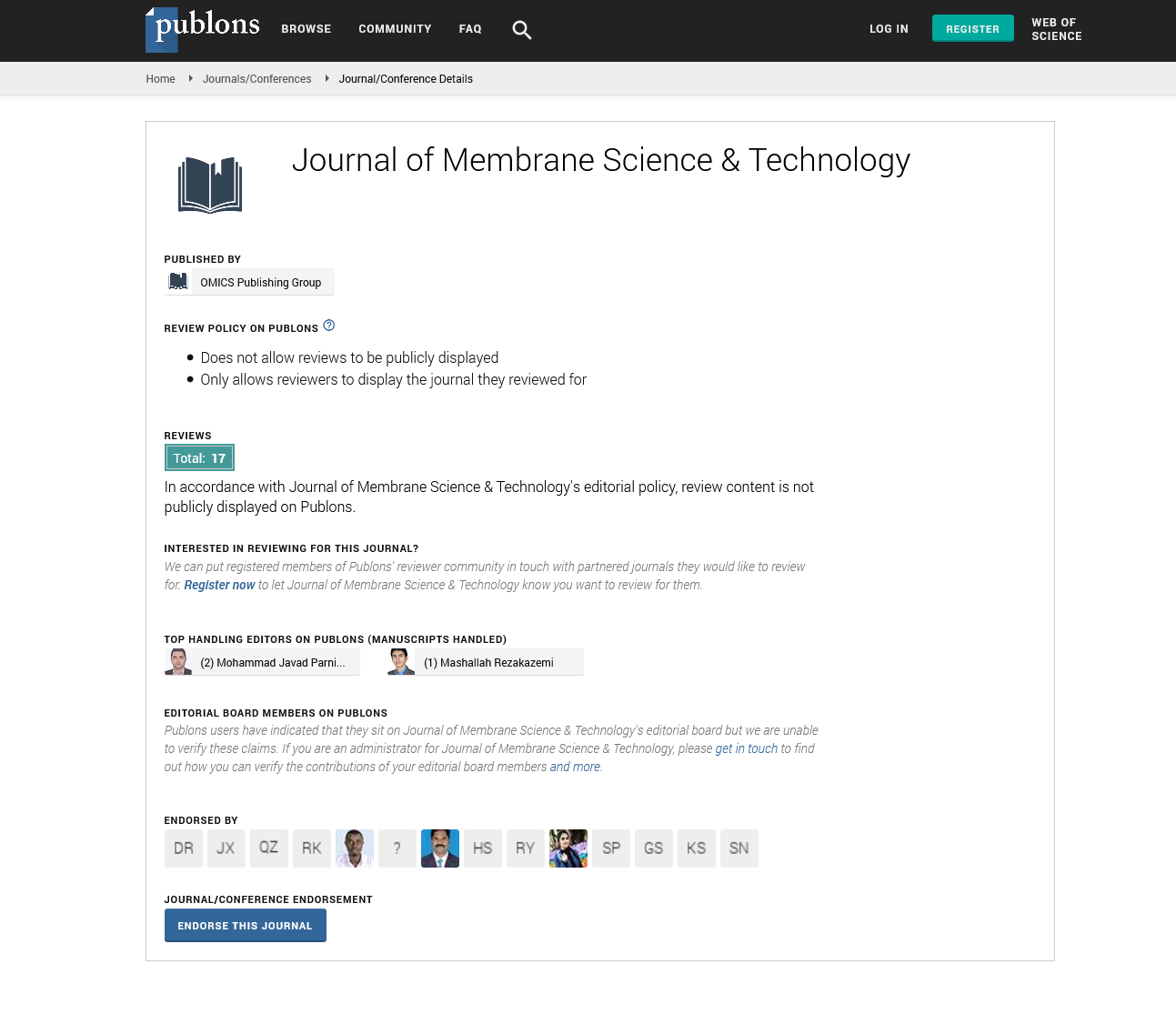Indexed In
- Open J Gate
- Genamics JournalSeek
- Ulrich's Periodicals Directory
- RefSeek
- Directory of Research Journal Indexing (DRJI)
- Hamdard University
- EBSCO A-Z
- OCLC- WorldCat
- Proquest Summons
- Scholarsteer
- Publons
- Geneva Foundation for Medical Education and Research
- Euro Pub
- Google Scholar
Useful Links
Share This Page
Journal Flyer

Open Access Journals
- Agri and Aquaculture
- Biochemistry
- Bioinformatics & Systems Biology
- Business & Management
- Chemistry
- Clinical Sciences
- Engineering
- Food & Nutrition
- General Science
- Genetics & Molecular Biology
- Immunology & Microbiology
- Medical Sciences
- Neuroscience & Psychology
- Nursing & Health Care
- Pharmaceutical Sciences
Opinion Article - (2023) Volume 13, Issue 3
Role of Myoferlin in Cancer Development: A Comprehensive Overview
Kim Jong*Received: 24-Apr-2023, Manuscript No. JMST-23-21481; Editor assigned: 27-Apr-2023, Pre QC No. JMST-23-21481 (PQ); Reviewed: 11-May-2023, QC No. JMST-23-21481; Revised: 18-May-2023, Manuscript No. JMST-23-21481 (R); Published: 25-May-2023, DOI: 10.35248/2155-9589.23.13.346
Description
Myoferlin is a protein that plays an important role in the development of certain types of cancer. It is a member of the ferlin family of proteins and has been linked to several types of cancer, including breast cancer, colon cancer, and pancreatic cancer. In this article, we will discuss what myoferlin is and how it contributes to the development of cancer. Myoferlin is a transmembrane protein that is found in many different cell types. It has been shown to be involved in membrane repair, cell adhesion, signal transduction, and cellular motility. Myoferlin also plays a role in regulating the activity of certain genes involved in tumorigenesis, or the formation of tumors. Recent studies have demonstrated that myoferlin may be involved in promoting tumor growth by increasing the production and activity of certain proteins that promote tumor growth and metastasis (the spread of cancer from one part of the body to another). These proteins include some members of the Ecadherin family, which are important for cell-to-cell adhesion. Myoferlin may also stimulate angiogenesis (the formation of new blood vessels) which can help tumors spread more quickly. Myoferlin has also been found to be associated with increased levels of certain cytokines (chemical messengers) which can play an important role in tumor progression. For example, studies have shown that myoferlin can increase levels of interleukin 8 (IL-8), a cytokine that promotes inflammation and can contribute to tumor growth and metastasis. In summary, myoferlin plays an important role in the development and progression of certain types of cancers by influencing multiple pathways related to tumor growth and metastasis. Further research is needed to understand the exact mechanisms by which myoferlin contributes to cancer development so that effective treatments can be developed for these diseases.
Myoferlin is a protein that plays an important role in the transmission of signals across cellular membranes. It is expressed throughout the body but is particularly important in the development of cancer. In this article, we will take a look at how myoferlin is involved in membrane transmission and how it can affect cancer development. Myoferlin is a type of membraneassociated protein that helps to facilitate communication between cells by transmitting signals across cell membranes. It binds to specific receptors on the surface of cells and acts as an intermediary between the two cells, allowing them to communicate with one another. This process is known as membrane transmission and it allows for the exchange of information between cells. Myoferlin has been found to be involved in numerous processes related to cancer development, such as cell proliferation and metastasis. Studies have shown that myoferlin expression is increased in many types of cancer, suggesting that it plays an important role in cancer progression.
In addition, studies have shown that myoferlin expression can be used as a prognostic marker for certain types of cancers, such as breast and ovarian cancers. Myoferlin also plays an important role in apoptosis, which is the process by which damaged or unwanted cells are removed from the body. Apoptosis occurs when myoferlin binds to specific receptors on cell membranes and triggers a signal for them to undergo programmed cell death. By triggering apoptosis, myoferlin helps keep healthy cells alive while eliminating harmful or unwanted ones from growing uncontrollably and leading to cancerous tumors. In conclusion, myoferlin plays an important role in membrane transmission and its expression can affect cancer development. It helps facilitate communication between cells by binding to specific receptors on their surfaces and allowing them to exchange information with one another. Additionally, it can trigger apoptosis which helps keep unwanted or harmful cells from developing into tumors and causing cancerous growths within the body.
Cancer is a major health concern which affects millions of people worldwide. While many treatments and strategies have been developed to combat the disease, new research is constantly being conducted to find better ways to prevent and treat cancer.
One area of research that has recently gained attention is the role of myoferlin in cancer development. Myoferlin is a membraneassociated protein that has been linked to numerous types of cancer, including breast, prostate and colorectal cancers.
Citation: Jong K (2023) Role of Myoferlin in Cancer Development: A Comprehensive Overview. J Membr Sci Technol. 13:346.
Copyright: © 2023 Jong K. This is an open-access article distributed under the terms of the Creative Commons Attribution License, which permits unrestricted use, distribution, and reproduction in any medium, provided the original author and source are credited.

